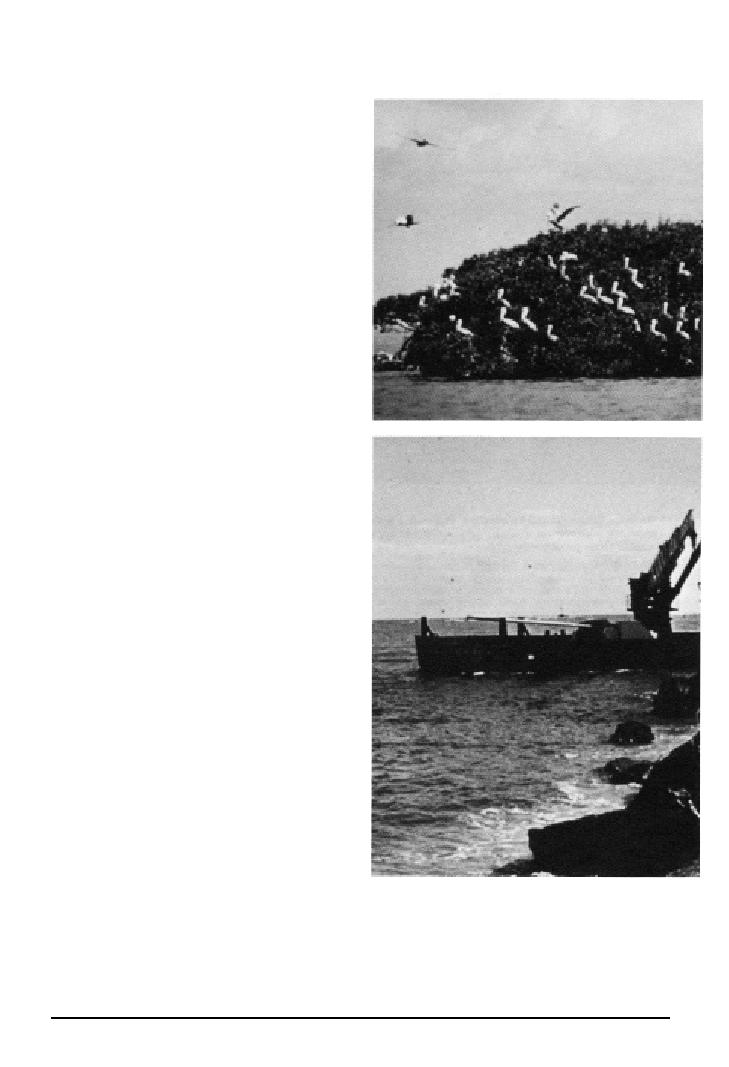
Dredged material converted to manmade island
also. So you might say the United States has a pending
water crisis which would be much more difficult to han-
dle than either the energy or the economic situation
which we now have. It's pretty hard to negotiate with
Mother Nature when she decides to cut off the supply.
Would it be feasible to help Mother Nature by transporting
water from areas of abundance to those of needy
I suppose so, but this is a very complicated subject and
making it come true is probably more difficult than the
average person might think. For one thing, there's the
question of who owns the water. Does it belong to the
States? Another problem is embargoes, some Federal,
on moving water from certain basins to others, and there
are even international agreements which preclude such
transbasin shipments. So while it would be feasible from
the engineering standpoint, there are political and re-
gional constraints which, for a while at least, present
very difficult obstacles.
Besides providing drinking water, will the Corps be able
to increase the Nation's supply of electrical energy through
further development of hydropower?
Most definitely! A great amount of energy exists in our
rivers which could be converted into hydroelectric pow-
er. We need to take a hard look at the proper role of
hydroelectric power, including pumped storage, in meet-
ing the Nation's electric energy demands. We already
know that hydroelectric developments provide a clean
source of electric energy with little, if any, consumption
or degradation of the water resource itself. There are
great opportunities for hydroelectric power develop-
ment in Alaska as well as the Pacific Northwest, some
potential on the Missouri River, and in some of the
existing facilities in the Southeast. Speaking compara-
tively, hydroelectric energy is a clean and nonconsump-
tive form of energy.
When construction projects disturb existing fish and wild-
life habitat, what are the ecological results?
Generally speaking, the effect has been to change the
fish and wildlife populations which were in a region be-
fore the project was developed. That's particularly true
with our lake projects. With the help of the Fish and
Wildlife Service we have replaced what was there with,
in many cases, a better fish and wildlife population. In
all cases that I'm aware of, once a project is in opera-
tion, the Corps has given constant attention to the
matter of the species of fish and wildlife which choose
to reside in that area.
On the human side how will growth in visitations be
managed?
We've learned an awful lot in the last 30 years or so
about operating reservoirs and what masses of people
can do to these pleasant and attractive areas. I think
4
B-4



 Previous Page
Previous Page
